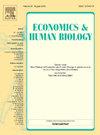超级应用程序对中低收入国家营养转型的影响:来自印度尼西亚的证据
IF 1.8
3区 医学
Q2 ECONOMICS
引用次数: 0
摘要
许多低收入和中等收入国家正在经历从传统饮食向高能量加工食品的营养转型,这增加了非传染性疾病的风险。粮食系统的数字化在形成这一转变方面发挥着重要作用。本文调查了超级应用程序扩展(包括食品配送、拼车和其他日常生活援助)对营养结果的影响。我们利用2015年至2018年间Gojek和Grab在印度尼西亚的交错推出,将超级应用程序扩展数据与印度尼西亚的基本健康调查(Riskesdas)和国家社会经济调查(Susenas)相结合,评估它们对营养和饮食结果的影响。我们采用双重稳健的差异中差异方法合并基线协变量来解决内生性问题。研究结果表明,超级应用程序会增加BMI,这对超重和肥胖的发生率产生不利影响。这种影响在拥有在线送餐功能的城市和地区更为明显。这些应用在已经超重/肥胖、更年轻、更富裕(即受过高等教育、收入更高、有工作)的人群中不成比例地增加了BMI,表明这些群体的使用率更高。这是由于不健康食品(即咸味食品和熟食)的消费增加所致。另一方面,超级应用程序有可能减少体重不足,改善饮食多样性。这些发现突出了超级app在中低收入国家营养转变中的作用。本文章由计算机程序翻译,如有差异,请以英文原文为准。
The impact of super apps on the nutrition transition in low- and middle-income countries: Evidence from Indonesia
Many low- and middle-income countries (LMICs) are experiencing a nutrition transition from traditional diets to high-energy, processed foods, increasing non-communicable disease risks. Digitalization of food systems plays a significant role in shaping this transition. This paper investigates the impact of super app expansions (including food delivery, ridesharing, and other daily life assistance) on nutritional outcomes. We exploit the staggered rollout of Gojek and Grab between 2015 and 2018 in Indonesia to estimate their effects on nutritional and dietary outcomes, combining super app expansion data with Indonesia’s Basic Health Survey (Riskesdas) and the National Socioeconomic Survey (Susenas). We incorporate baseline covariates using a doubly robust difference-in-differences approach to tackle endogeneity issues. The results show that super apps increase BMI, which adversely affects the incidence of overweight and obesity. The effect is more pronounced in cities and districts with online food delivery features. These apps disproportionally increase BMI among individuals who are already overweight/obese, younger, and more affluent (i.e., higher education, higher income, in employment), indicating higher usage among these groups. This is due to increased consumption of unhealthy food (i.e., salty and prepared foods). On the other hand, super apps have the potential to reduce underweight and improve dietary diversity. These findings highlight the role of super apps in the nutrition transition in LMICs.
求助全文
通过发布文献求助,成功后即可免费获取论文全文。
去求助
来源期刊

Economics & Human Biology
医学-公共卫生、环境卫生与职业卫生
CiteScore
4.50
自引率
12.00%
发文量
85
审稿时长
61 days
期刊介绍:
Economics and Human Biology is devoted to the exploration of the effect of socio-economic processes on human beings as biological organisms. Research covered in this (quarterly) interdisciplinary journal is not bound by temporal or geographic limitations.
 求助内容:
求助内容: 应助结果提醒方式:
应助结果提醒方式:


